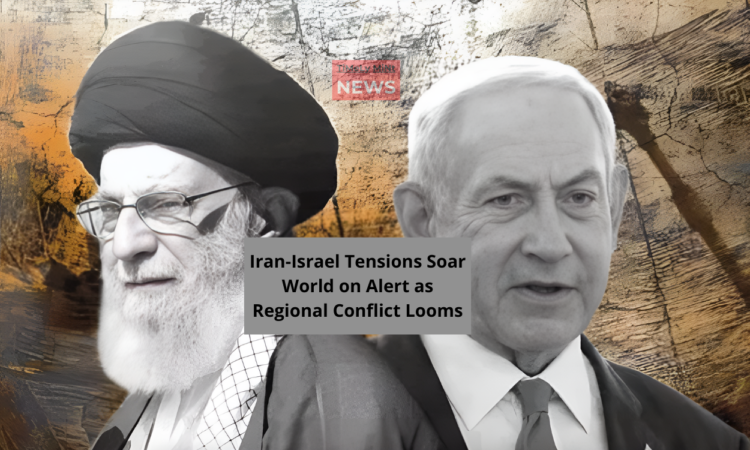The escalating tensions between Iran and Israel have put the world on high alert, as the international community closely monitors the situation and urges restraint to prevent a wider regional conflict. The recent Israeli airstrike on an Iranian embassy in Syria, which killed seven Iranian military advisers, has triggered a vow of retaliation from Iran, raising concerns about the potential for a direct confrontation between the two adversaries.
Background of Iran-Israel Relations
The hostility between Iran and Israel dates back decades, with both countries engaging in proxy wars and covert operations against each other. Israel views Iran as an existential threat due to its nuclear program and support for militant groups like Hezbollah and Hamas. Iran, on the other hand, sees Israel as an illegitimate state occupying Palestinian lands and a key ally of its regional rival, Saudi Arabia.
Current Situation: Israel Braces for Iranian Retaliation
In the aftermath of the Israeli airstrike on its embassy in Syria, Iran has vowed to punish Israel, with Supreme Leader Ayatollah Ali Khamenei warning that Israel “must be punished and it shall be.” Israel is now on high alert, preparing for a potential Iranian attack that could involve over 100 drones and dozens of missiles targeting its military installations.
The United States, a close ally of Israel, has pledged “ironclad” support for Israel’s defense. President Joe Biden has warned Iran not to strike while moving additional military assets to the region to bolster deterrence. The Pentagon believes the threat of an Iranian attack is “real” and “viable.”
International Community’s Response
The escalating tensions have prompted several countries, including the United States, India, France, and Russia, to issue travel warnings for the region. The international community is urging restraint and diplomatic engagement to de-escalate the situation and prevent a wider conflict.
| Country | Response |
|---|---|
| United States | Pledged “ironclad” support for Israel’s defense, warned Iran not to strike |
| India | Expressed concern about growing tensions, urged parties to follow international law |
| France | Issued travel warning for the region |
| Russia | Issued travel warning for the region |
United Nations’ Stance
The United Nations has expressed deep concern about the escalating tensions and the potential for a broader regional conflict. In a Security Council briefing, UN Assistant Secretary-General Khaled Khiari emphasized the inviolability of diplomatic premises under international law and warned that any miscalculation could have devastating consequences for civilians in the region.
Many UN member states have asserted that attacks on diplomatic premises violate the UN Charter and international conventions. However, the UN faces challenges in its response, with differing views among member states on the Israel-Palestine conflict and criticism of alleged bias in its resolutions.
Humanitarian Concerns
As tensions continue to rise, UN officials have called for unhindered humanitarian access and prioritizing the saving of civilian lives in conflict zones like Gaza. The organization is alarmed by the staggering loss of life and human rights violations that could result from a wider regional conflict.
Conclusion
The escalating tensions between Iran and Israel have put the world on edge, with the international community closely monitoring the situation and urging restraint to prevent a wider regional conflict. As Israel braces for a potential Iranian attack and the United States pledges its support, the need for diplomacy and adherence to international law has never been more crucial.
The consequences of further escalation could be devastating, not only for Iran and Israel but for the entire region and its civilians. It is imperative that all parties involved exercise restraint and engage in diplomatic efforts to de-escalate the situation and find a peaceful resolution to their long-standing conflicts. The world needs to step in with Diplomatic approach to try and resolve this without any devastation to civilian lives.














